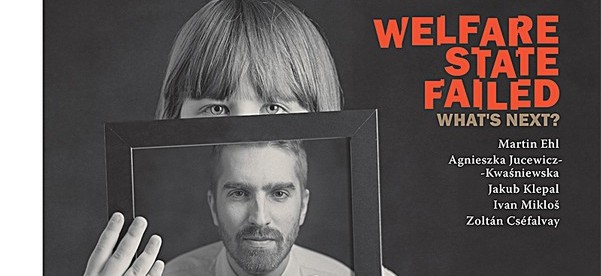
"After the Welfare State” the fourth issue of Visegrad Insight, discusses the question of how we will take care after each other in the future. The issue is available in electronic formats (PDF, mobi or epub) at our website www.visegradinsight.eu or in print version in selected bookstores worldwide.
Wojciech Przybylski, editor-in-chef, presents:
In this volume of Visegrad Insight we investigate the welfare state in crisis and delve into the challenges that lie ahead for ever-shrinking generations. Martin Ehl writes a policy memo for all those seriously considering a responsible political career in the decades to come, and Agnieszka Jucewicz-Kwaśniewska calls for a change in the contemporary model of education. Without such a shift, we will continue to raise little egoists instead of compelling human beings.
We also report on political implications arising from solidarity addressed in public debate. This seems simple: while words uttered in the corridors of the EU Parliament fade into the distance, the practical experience of a natural disaster creates a window of opportunity for politicians seeking more empathy from voters. Matteo Tacconi, an Italian journalist reporting on Central Europe, writes about the ways recent floods have changed policy and politics in the region.
It is worth remembering that the idea of “solidarity” came to the fore together with political transformations in the region. This is emphasized in a lecture by Michael Sandel, a professor at Harvard, and arguably the most prominent public philosopher of our time.
Furthermore, we report on the future of democracy in the developing world and development assistance. In the last ten years, the V4 countries have quadrupled their development assistance budgets. However, as Maciej Kuziemski observes, this increase has not yet been followed by a coordinated effort or public debate. To determine why that is so and what the future holds, we interviewed: Igor Blaževič, Tomicah Tilleman or Karla Wursterova – experts and key actors in V4 debate on this topic.
Europe may not be portrayed as perfect, but this criticism is not shared by the struggling and drowning migrants from North Africa who risk their lives to come here. I wonder if that is what political players mean, when they speak of “tourism for benefits.” Even if that were true, would it permit us to confine solidarity to national or even EU boundaries? I think not.












